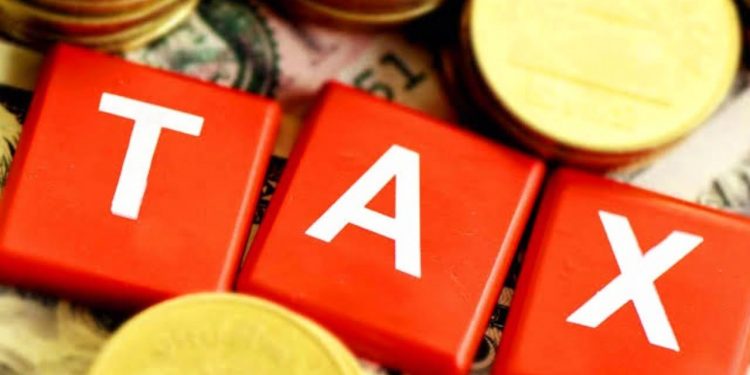The Federal Government has proposed a significant change in how individuals pay their taxes, introducing an option for taxpayers to make payments in installments. This proposal is part of the Nigeria Tax Bill 2024, recently submitted to the National Assembly for approval. According to the bill, citizens will have the flexibility to either make a lump-sum payment or spread their payments over several months, provided the final payment is made by the filing deadline.
The Nigeria Tax Bill 2024 introduces a series of reforms aimed at improving tax collection and easing compliance. One key feature is the creation of a special account by the Accountant-General of the Federation for handling tax refunds, ensuring that overpaid taxes are refunded promptly.
These reforms follow a comprehensive set of new tax measures introduced by the government last week, which are part of efforts to increase revenue collection significantly. The Presidential Fiscal Policy and Tax Reforms Committee, chaired by Taiwo Oyedele, developed these proposals, which were submitted in four new bills to the National Assembly.
The new framework also targets efficiency in tax collection, particularly direct taxes and government-imposed levies. In a major shift, the government plans to remove revenue collection responsibilities from agencies like the Nigerian Customs Service, the Nigerian Ports Authority, and 60 other agencies. Instead, these functions will be handled by a newly created body, the Nigeria Revenue Service.
The government also seeks to establish a tax tribunal and ombudsman to address tax disputes and complaints. The reforms aim to streamline tax administration and reduce the number of agencies involved in revenue collection, creating a more unified system.
Flexible Payment Terms
A deeper look into the 160-page draft of the Nigeria Tax Bill 2024 highlights the government’s intention to ease tax compliance by allowing installment payments. Section 48 of the bill outlines how taxpayers can fulfill their obligations through monthly installments. According to the bill, “every person shall make payment of tax due on or before the due date of filing in one lump sum or installments, provided that the final installment shall be paid on or before the due date of filing.”
For each accounting period, taxpayers will be required to make monthly payments equal to one-twelfth of the estimated annual tax. If the accounting period is less than a year, payments will be adjusted accordingly. The first monthly payment will be due by the third month of the accounting period, with subsequent payments required at the end of each month.
The bill further specifies that the final installment must be paid by the filing deadline and will consist of the tax assessed for the period, minus any payments already made. In cases where the total tax due is less than the amounts already paid, taxpayers will receive refunds following an audit by the relevant tax authorities.
Refund Mechanism and VAT Sharing Formula
The Nigeria Tax Bill 2024 provides clear guidelines for tax refunds. Taxpayers are entitled to refunds for any overpayment, which will be processed within 90 days of an audit by the relevant tax authority. To manage these refunds, the Accountant-General of the Federation will open dedicated accounts for each tax type. The relevant tax authorities will estimate the amounts to be set aside for refunds and transfer them into these accounts.
For value-added tax (VAT), the bill proposes a new revenue-sharing formula. According to the document, “The net revenue accruing by the operation of chapter six of the Nigeria Tax Act shall be distributed as 10 percent to the Federal Government; 55 percent to the State Governments and the Federal Capital Territory; and 35 percent to the Local Governments.” Additionally, 60 percent of the VAT allocated to state and local governments will be distributed based on the principle of derivation, meaning the regions that generate the most VAT will receive a larger portion of the funds.
In a bid to enhance transparency and address disputes, the bill proposes the creation of a tax tribunal and an ombudsman. These bodies will handle complaints from taxpayers regarding tax assessments, collections, and refunds. By establishing these institutions, the government aims to provide a fair and efficient mechanism for resolving tax-related disputes, thereby increasing trust in the tax system.
Boosting Government Revenue
The Federal Government’s new tax reforms are expected to lead to a significant increase in revenue collection. By simplifying the payment process, offering flexible options, and centralizing tax administration, the reforms are designed to encourage greater tax compliance. The Nigeria Revenue Service, which will replace multiple revenue collection agencies, will play a key role in this effort.
These reforms mark an important step in Nigeria’s fiscal policy, especially for micro, small, and medium enterprises (MSMEs) across Africa. The introduction of installment payments and the establishment of a more efficient tax system will reduce the burden of tax compliance for businesses, encouraging growth and supporting economic development.
With the Nigeria Tax Bill 2024 now in the hands of the National Assembly, the coming months will determine how these reforms are implemented and their impact on taxpayers across the country and beyond.










